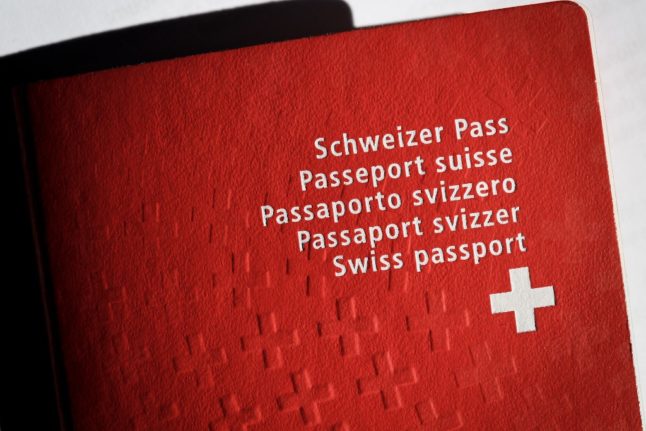This may seem like an extreme rule in a democratic country, but countries can take a stand against views or behaviour.
In neighbouring Germany a number of politicians, including the Justice Minister, want to tighten the requirements on the country’s upcoming citizenship reforms regarding anti-Semitism. Marco Buschmann, of the FDP, says that those found to harbour anti-Semitic motives would be ineligible for German citizenship under the planned new law.
READ ALSO: German Justice Minister calls to ban ‘antisemites’ from becoming citizens
The leader of the opposition Christian Democrats in Germany has even gone as far as proposing that the citizenship reforms should include a formal requirement for immigrants to recognise Israel’s right to exist as a prerequisite for German citizenship.
Currently, the draft law states that naturalisation is out of the question in Germany if the foreigner “shows by his or her behaviour that he or she does not accept the equal rights of men and women laid down in the Basic Law”.
These can include “anti-Semitic, racist, xenophobic or other inhumanely motivated actions incompatible with the human dignity guarantee of the Basic Law”.
Can this happen in Switzerland as well?
In this respect, the two countries differ, at least from a historical perspective.
Because of Nazi Germany’s persecution and genocide of millions of Jews, politicians in Germany may feel a need to compensate for this historical wrong.
Switzerland, on the other hand, doesn’t feel the same sense of responsibility — even though some historians claim the country was tough in its treatment of Jews seeking refuge in Switzerland during WWII, by denying them entry (which the Swiss refute).
Apart from the historical component, however, it is highly unlikely that Switzerland would follow Germany’s lead in this regard.
This is why
Candidates for Swiss naturalisation must fulfil a number of requirements, such as the length of stay in the country, language proficiency, and integration, among other criteria.
However, Swiss constitution guarantees the freedom of belief, also referred to as ‘freedom of conscience’, to all residents — including foreigners who live in the country.
This provision includes the right to have one’s own political opinions.
While naturalisation commissions have been known to ask applicants some arbitrary questions, supposedly to judge their level of integration — for example, about what animals live in a local zoo — they cannot ask any personal questions, apart from those needed to ascertain the candidate’s suitability.
Therefore, it is permissible for naturalisation authorities to want to know about how you and your family have integrated into your local community, what hobbies / activities you are involved in, or why you would like to become a Swiss citizen in the first place.
However, enquiring about your political views, religion, or sexual orientation, is not permitted (and you should not answer such questions if asked).
By the same token, authorities cannot force you to adopt any particular beliefs.
That would be unconstitutional. The only way this could be allowed would be if legal basis for such a measure were created.
However, there are some exceptions
If there is proof that you sympathise with (or a member of) organisations that Switzerland considers to be terrorist, then you will not be granted citizenship.
These extremist groups, which include Al-Qaeda and the Islamic State (ISIS), are banned in Switzerland.
At present time, Hamas, which is responsible for initial attacks on Israel in September, is not designated as a terrorist organisation in Switzerland, though this is likely to change soon, as parliamentary pressure to do so is mounting.
So while the government cannot force any political beliefs on you, it does expect its citizens (or candidates for citizenship) not to hold extremist views which could endanger Switzerland’s security.
In fact, if you are a dual citizen, the government can revoke your Swiss passport if your “conduct is seriously detrimental to Switzerland’s interests or reputation”.
One example of when such a drastic and irrevocable step can be taken is in the case of people convicted of war crimes, treason, or terrorism.
READ ALSO: Can Swiss citizenship be revoked – and can you get it back?



 Please whitelist us to continue reading.
Please whitelist us to continue reading.
Member comments